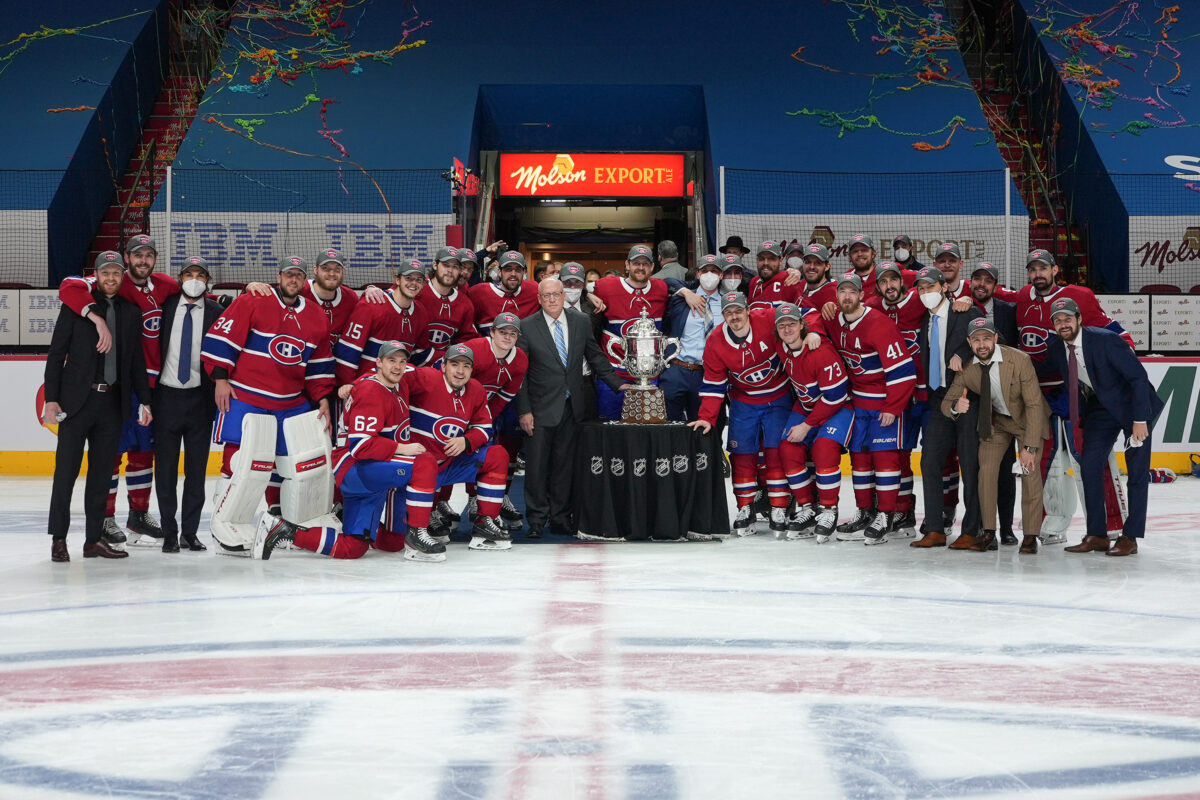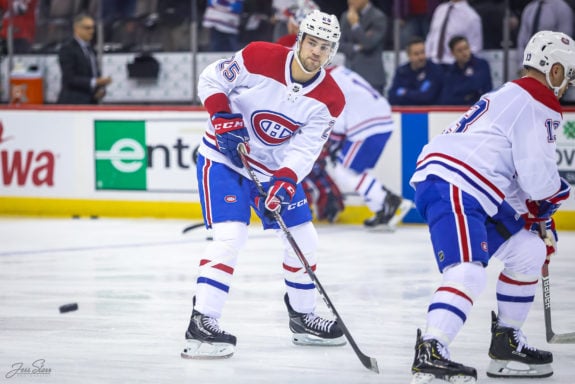The Montreal Canadiens 2021-22 training camp is a couple of weeks away, with their first exhibition game slated for Sept. 25 against the Toronto Maple Leafs. As always, training camp helps ensure the team begins the season on a strong footing; however, that is especially true of this season as they try to avoid any symptoms of a Stanley Cup hangover.
Here is a cautionary training camp tale: the 2016-17 Canadiens won a division title, finishing with 103 points. The team failed to make a deep playoff run, losing in the quarterfinals to the New York Rangers in six games, but the Habs were expected to be a top-tier team the next season. They struggled mightily in 2017-18, finishing with a 29-40-13 record. Several Canadiens blamed their poor play early on to a casual training camp. They lost their first six exhibition games and finished the preseason with a 2-6 record, and it didn’t improve much from there.
Admittedly, most preseason win-loss records are not taken too seriously in measuring the likelihood of regular-season success, but that preseason it was clear, the Canadiens were out of sync.
This trip down memory lane should be a lesson for the current Canadiens. Things change quickly in the NHL, and their compelling run to the Stanley Cup Final in 2020-21 is no guarantee of success moving forward. In the face of a variety of new challenges, this season’s training camp is crucial, and here are a couple of ways the Canadiens can get off on the right foot and avoid a Stanley Cup hangover.
Stanley Cup Hangover
A Stanley Cup hangover refers to a team’s poor start following a deep playoff run, including the Stanley Cup Final, and often leads to missing the playoffs entirely. Some may deem the ‘hangover’ as fodder for the superstitious – coincidence in a sport with a high level of parity – but the intensity of a long playoff has proven to hamper some teams the following season.

There are many examples: the 2006-07 Edmonton Oilers and the 2020-21 Dallas Stars, to name a couple. In rare cases, reigning Stanley Cup Champions have bottomed out the season following their victory. The volume and intensity of the playoffs coupled with a shortened offseason are difficult on players. Luckily, the Canadiens have several new additions, and their attempt to make a strong first impression should provide a boost of energy.
Key 1: Embrace Internal Competition
New players Mike Hoffman, Christian Dvorak, David Savard, Matthieu Perrault, Chris Wideman, and Cedric Paquette will want to solidify their roles during training camp. Most of these players will be in the lineup on opening night, but not all. The Canadiens’ coaching staff needs to harness the internal competition between these veterans and the established players on the team. For the returning players, losing in the Stanley Cup Final will still be fresh, which should add a competitive edge during training camp. Early competition for a role on the team should help raise the level of play before the season begins.
Meanwhile, Montreal’s young stars will be looking to take the next step in their development. There is an opening for center Ryan Poehling if he pushes for it. After a strong season with the Laval Rocket in 2020-21, he appears ready to take the next step. His presence at camp should increase the competition among the centres and bubble players.

Defenseman Alexander Romanov will want a bigger role this season. With Wideman in the mix, the Canadiens’ blue line is packed. The young Russian needs to embrace this challenge and seize a more prominent role.
Jonathan Drouin also has much to prove after missing time last season for personal reasons. He will have to earn his place in a lineup that found success in his absence. The Canadiens have much to prove after last season and training camp is where it will all begin.
Key 2: Ducharme Must Communicate Effectively
Head coach Dominique Ducharme needs to follow through on his strong head coaching debut. His interim tag was removed after the Canadiens’ postseason run, and he signed a three-year extension. Yes, he made some head-scratching decisions last season: scratching Jesperi Kotkaniemi in the Stanley Cup Final, for example. However, most of Ducharme’s other decisions, even when I disagreed with them, worked for the team. He needs to continue to be decisive about his roster and system.
Ducharme must also effectively communicate his vision of how each player fits into the team schema. The earlier the players learn what is expected of them, the earlier they will cohere as a unit, which is particularly important considering the influx of new players from different organizations. Communication is the key to creating a strong sense of team identity.
Ultimately, training camp is a balancing act between patience and assertiveness. The Canadiens’ coaching staff must be patient in allowing new players to learn the new systems. This will take direct and clear communication. Coupling strong communication with a strong commitment to promoting internal competition will be key to helping the team overcome the Stanley Cup hangover.